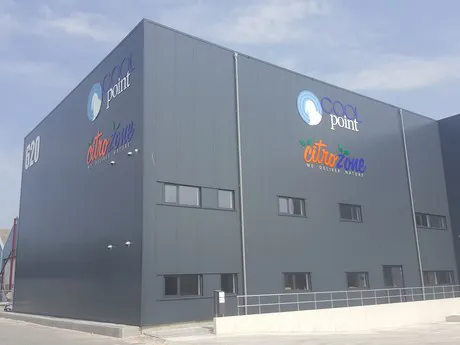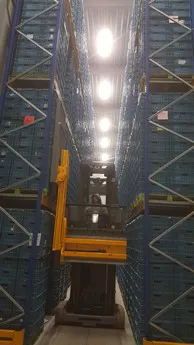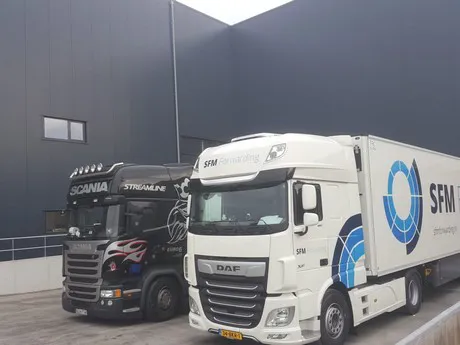In recent months there was an acute shortage of cold storage. There’s still a large demand for cold stores, but now that the busiest supply period is over and more cold stores become operational, this will steadily decline in the coming weeks.

Most logistics service providers still have a lack of cold storage. A lot of companies still have to hire external cold stores to store all of the products under the correct conditions. The large demand for cold stores is partially thanks to the explosive growth of supply in and around Rotterdam, the Netherlands. Cooling capacity was added to the sector, but not everything was and is functional to handle this increase. The increase can be noticed across the fresh produce lines, but mostly products such as blueberries, avocados, sweet potatoes and pomegranates are increasingly supplied. Considering the expansion of the production area of these products, a continued increase is likely.
The peak period is from May to late August. In these months, the cold stores practically always need external cold store, but this year they had an actual acute shortage. Large volumes were stored elsewhere in all corners of the Netherlands. Because everyone was looking for additional cold store, it wasn’t easy to find available space. Because of the expected increase of import products, plenty of cold capacity will also be something to bear in mind in future. Now that the amount of square metres of cold store is rising, it’s expected that once all cold stores are operational, volumes will be easier to handle.
 More hands needed
More hands needed
The logistics service providers primarily cool for foreign producers with a sales office in the Netherlands. Some players personally invest in cold store after a while, but being able to outsource the entire logistical process is still a major advantage for most companies. Cold stores personally organise the complete package more and more, from the handling of documents, transport and quality inspections to the ripening, packing and repacking of products.
Just refrigerating is no longer enough. Providing service throughout the entire process has become a must. These are additional services that make the work interesting to them. However, finding plenty of suitable workers is still a major challenge. There’s plenty of work, but not always enough hands. Training staff has also become more important to guarantee quality in all of the links of the supply chain. In future, cold stores will critically have to assess what they can all handle. It’s interesting to move along with the current volumes, but they do have to be able to organise it.
Maximum cooling capacity with minimal space
Coolpoint is a newcomer in the cooling sector, a sister company of Citrozone, which is specialised in the global trade of citrus, grapes and kiwi fruit. Manager Ahmed Abdelhady says they currently don’t have a shortage of cold store. “The high season is from May to late July, when the Mediterranean season and the South African season meet.” He mentions that just cooling is no longer enough. That’s why the company can take care of the entire provision of services, including container handling in the port, quality inspections upon arrival, cold store, packaging, labelling and so on. Besides, Coolpoint offers the option of renting office space. The cold store has four cooling cells with each their own temperature at their disposal. The total cooling capacity of Coolpoint amounts to 1,200 pallets.

“Our warehouse is completely new and was built especially to utilise the available space as optimally as possible. Our plan was to realise the maximum possible storage capacity on as small a surface as possible. That’s why we chose a mobile rack system with storage racks up to 14 metres, so that we can store pallets on four levels. This way, our CO2 emissions are lower as well.” When asked if changes regarding products or customers are noticeable, Ahmed replies that he’s dealing with foreign suppliers who want to start their own company in the Netherlands to follow up on their fruit more often. “That way, they can be in control of the entire process from production to final customer in Europe, which is to the benefit of the product.”
More information:
Coolpoint
Ahmed Abdelhady
ahmed@citrozone.nl
www.coolpoint.nl
